The GCRI Advising and Collaboration Program welcomes people from all backgrounds and career points to connect with GCRI, get advice, and collaborate on projects. The program provides personalized experiences that are uniquely tailored to the individual depending upon their particular needs and circumstances. Therefore, every participant gets something different out of the program. Below are testimonials from six participants describing their experiences in the 2021 Advising and Collaboration Program.
- Uliana Certan, International relations scholar
- Manon Gouiran, Research intern at the Swiss Center for Affective Sciences
- Aaron Martin, PhD student at Rutgers University
- Dakota Norris, Masters student at the University of Saskatchewan
- Allan Suresh, Bachelors student at the National Institute of Technology, Karnataka
- Courtney Tee, Monitoring and Evaluation Specialist at One Earth Future Foundation
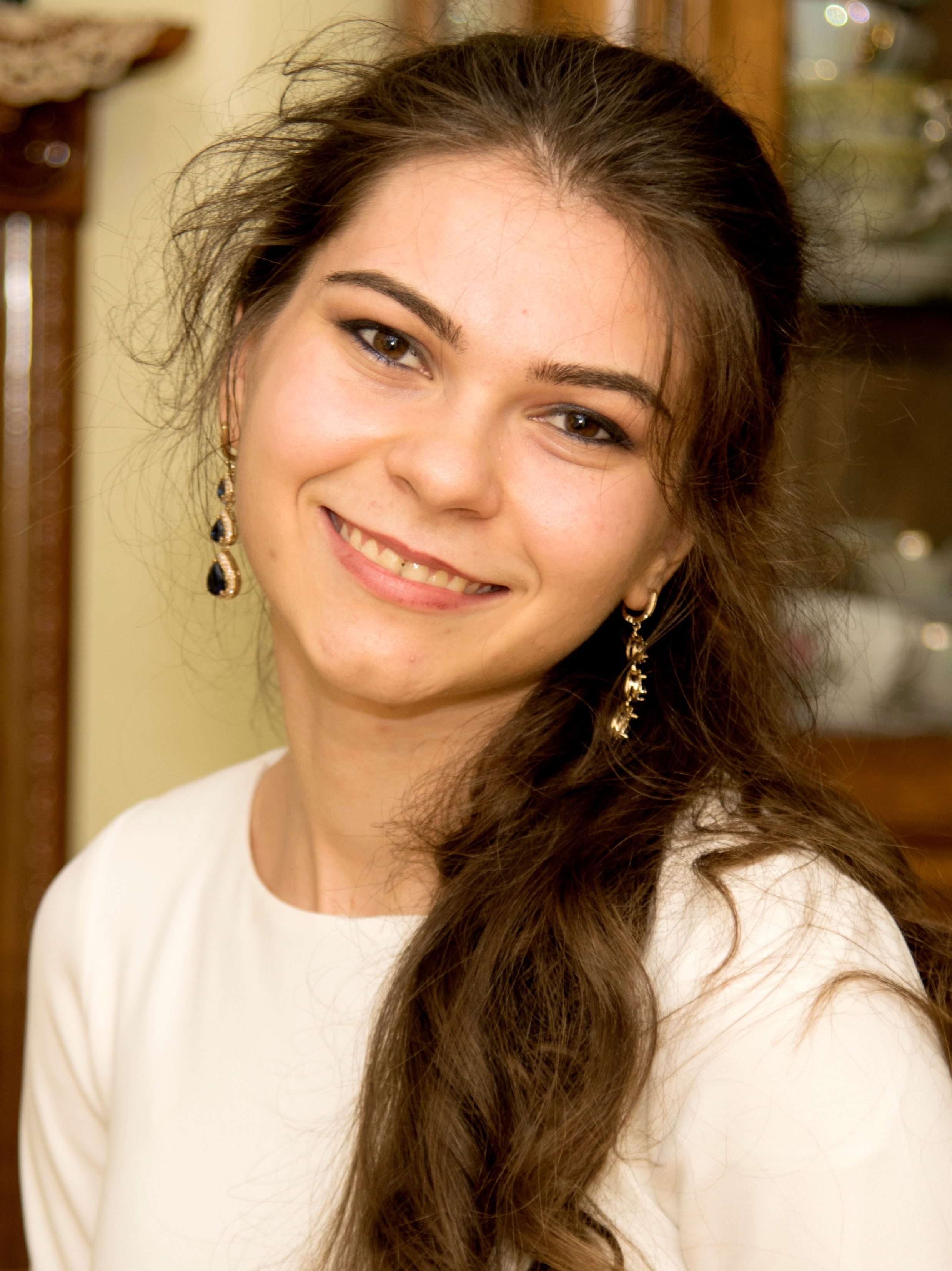
Uliana Certan
International relations scholar
I am a proud 2021 GCRI Fellow as a result of my participation in the 2021 GCRI Advising and Collaboration Program. I am currently collaborating with GCRI on a research project on military artificial intelligence and related international security topics. Our collaboration continues to be interesting, constructive, and challenging. I’m happy to be consumed by the work I’m doing at the moment, and equally eager to start on the projects we will undertake in the near future. I foresee my relationship with GCRI to be diverse and long lasting.
I am a young professional in the international relations field with a special interest in international security. I completed my undergraduate degree at Brandeis University with a triple major in international global studies, politics, and economics, and a year-long study abroad program in traditional international relations at the London School of Economics and Political Science. Although I’m glad that I cast a wide net during my studies, I struggled to narrow my focus to one particular sphere once the time came to pursue a specific career path.
Early this past year I came across 80000hours.org and immersed myself in their take on developing a high-impact career in a global priority sphere. From there, I joined the the Effective Altruism (EA) community and, soon after, my mentee application was accepted for the Women and Non-Binary Altruism Mentorship program (WANBAM). After quite a bit of guidance and encouragement from the unrivaled Kathryn Mecrow-Flynn, I was introduced to the welcoming and supportive McKenna Fitzgerald at GCRI, who has since become my personal mentor.
In the past few months of working alongside GCRI, I have experienced what I believe to be the perfect collaborative work environment. The expectations are raised with every new project or opportunity, but so is the assurance of support and assistance, both of which make for an effective way to grow quickly and effectively. More than anything, the team members at GCRI have been generous with their time and their networks. I’m continually impressed by their willingness to jump on a call, to look over my work, to offer experienced guidance, to put me in touch with a colleague or acquaintance, and to advise me on a range of questions and setbacks along the personal-professional spectrum.
I am especially thankful to Seth Baum for introducing me to the various projects under the military AI umbrella and encouraging me to contribute to them in a variety of ways. He has been an effective supervisor and a kind mentor who has responded with enthusiasm every time I’ve let him know that I had no prior experience with X or that this was my first time trying Y. With his guidance, I will be presenting a poster on our research at the SRA 2021 Annual Meeting. I am also involved in a number of group projects, as a collaborator in some and as a lead author in another. During our first meeting, Seth told me that he is eager and devoted to “help bring up the next generation of scholars in this field” and my personal experience speaks to his commitment to that role. He has also supported my interest in various other professional directions and my commitment to attend a graduate program in the near future. I have found myself being open and honest about my strengths and weaknesses, my desires and insecurities, and I’ve been met with nothing but reassurance, praise, and practical help. My experience with GCRI is foundational to developing an impactful career in innumerable ways. I encourage anyone in our sphere to apply to the Advising and Collaboration Program.
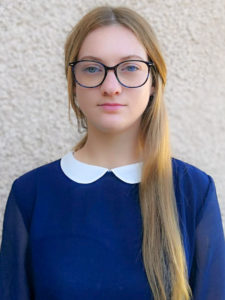
Manon Gourian
Research intern at the Swiss Center for Affective Sciences
It was during the beginning of my summer research project with the Swiss Existential Risk Initiative (CHERI) that I responded to the GCRI call for advisee and collaborators.
One of the questions they inquired about was “What do you hope from your interaction with GCRI?”
My answer: I need help finding the perfect career that combines a great impact with my skills and interest. I am pretty set on doing research, but I have not decided yet on the specific topic. And thus, I would also appreciate meeting people with the same interests who could advise me on how to use my skills to help the common effort and gain some more to have a greater impact!
I am glad to report that my interaction with the GCRI greatly exceeded my expectations!
First, regarding my career, Seth Baum was able to give me valuable insights and advice on whether or not to do a PhD, and on the different options. Even when he could not directly answer my questions, he found the right people for me to talk to and made introductions. Our collaboration with Dakota Norris on the project: moral circle expansion as a means of advancing management of global catastrophic risks was and still is a great experience! Working on this project also helped me refine my career plans.
Not only did my interaction with the GCRI allow me to gain more certainty into my career plans, but it also gave me the opportunity to further develop the skills necessary to achieve my objectives.
This collaboration allowed me to improve my research skills and to experience interdisciplinary research in the risk management context. I learned a lot about risk mitigation and how different approaches by different fields can be combined and greatly increase our understanding of an issue and the possible solutions. I expect to still learn more as this collaboration continues! In addition, Seth is a tremendous mentor who can actually give great advice on how to do research, what sorts of conclusions can be drawn from the literature, and how to write a good paper.
Finally, this collaboration was also fruitful and lead to great outcomes! We have a paper in preparation and will be presenting a poster at the Society for Risk Analysis Annual Meeting. I am also proud to have joined the 2021 Fellowship.
Being advised by and collaborating with the GCRI truly helped me grow as a researcher and I would recommend to everyone to take part in the next round of advisee/collaborators!
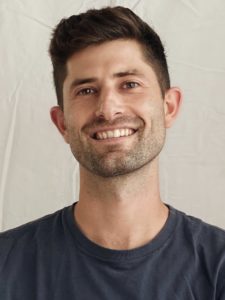
Aaron Martin
PhD student at Rutgers University
I am currently a PhD student in the Department of Sociology at Rutgers University studying catastrophic risk and the role of predictive tools and practices in risk governance. Having long followed GCRI’s work, I reached out to them in the summer of 2021 to explore the possibility of research collaboration and to more intentionally connect with the larger global catastrophic risk community.
It has been my experience that particularly in professional research circles outside of academia, there is a dearth of sociologists contributing to the important work of the global catastrophic risk community. I think this is in part due to disciplinary boundaries (the risk perspectives employed by sociologists are distinct from those used by economists or moral philosophers, for example) and differences in technical skills (the methods that trained sociologists use may be different than quantitative risk analysts, for example). But a critical consideration in catastrophic risk research is the social, cultural, and political conditions in which this class of risk emerges and through which risk might be mitigated. Sociology, then, has an important role to play in analyzing these conditions and in generating ideas for addressing possible harm.
GCRI has been exceptional in their commitment to interdisciplinary research. They responded to my initial email and set aside time to learn about my research, share their reactions, and propose possible lines of research we might be able to collaborate on based on their larger research objectives. Over the course of several conversations, we agreed to work together on a co-authored research project that examines policy attention to global catastrophic risks using three decades of U.S. policy on near-Earth objects as a case. GCRI had already generated a lot of the main ideas for the paper and generously invited me to contribute. It has been a model of interdisciplinary collaboration and one of my most rewarding intellectual experiences. The paper combines literature from psychology, political science, astronomy, sociology, and risk analysis and offers a practical contribution to the study of catastrophic risk governance. We are presenting our work at the Society for Risk Analysis’s Annual Meeting and aim to submit the paper for publication shortly after.
In addition, Seth Baum has been generous with his time and an invaluable resource for me as an early-career professional in the global catastrophic risk community. I have not only learned a great deal about risk through my interactions with him, but he has been patient in providing his thoughts on more specific career questions (some of which he wrote up here). GCRI has also been willing to facilitate introductions with other researchers, which has already led to some possible future collaborations.
I am grateful for the opportunities provided by GCRI’s advising and collaboration program and their willingness to bring in a range of perspectives to contribute to global catastrophic risk research. I look forward to continuing to engage with and learn from GCRI. It’s an exciting and important time to be doing this type of research, and GCRI has done a superb job in expanding the community.
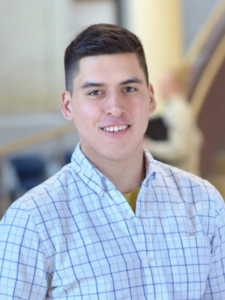
Dakota Norris
Masters student at the University of Saskatchewan
I’m a current Master of Environment and Sustainability student at the University of Saskatchewan, work part time for my department, and a 2021 GCRI Fellow. My work and studies focus on energy security in Indigenous communities, and for my Fellowship I am collaborating with GCRI on a research project on moral circle expansion as a means of addressing global catastrophic risk and improving the long-term future. I previously participated in the 2019 Advising and Collaborator program and participated in the 2020 Advising and Collaborator program. My collaboration with GCRI in 2021 resulted in me being selected as a 2021 GCRI Fellow. We are now collaborating on a research poster presentation and eventually a publication. I initially reached out because I am interested in the field of GCR and was generally familiar with it but wanted to develop my knowledge and was unsure about how to combine this with my background.
From the first time I reached out to GCRI to today, I have always felt supported, mentored, and heard. With my initial interest in GCR from a business perspective, GCRI immediately connected me to several key individuals in the field who provided extensive individual feedback on my interests and ideas. I had the opportunity to propose several research ideas and learn the opportunities and challenges within the field of GCR regarding them. I received large literature lists, projects ideas, was invited to special topics discussions related to my interests and was invited to provide feedback on a related article GCRI was submitting. I also volunteered a few hours to help format a GCRI article for submission.
After I first connected with GCRI, I moved on to a period of work focused on research and management in Indigenous development and climate change. This caused my interest to change, where I began considering how Indigenous topics intersect with GCR. As a member of the Gwich’in First Nation in Canada, and someone who believes in the importance of mitigating global catastrophic risks, I was excited to begin working on this. I then reconnected with GCRI with my renewed interest, where I received the same level of dedicated, personalized feedback, connections, and extensive opportunity to discuss collaborative project ideas. What I find most helpful about this Fellowship so far, is the amount of time that GCRI spends discussing their experience, reasoning, challenges, and opportunities with every level of a project. From scoping a project, finding literature, writing advice, explaining underlying ethics and perspectives in different ideas, to explaining the development of different fields, GCRI always provides me the knowledge and reassurance I need to be productive. While my focus in the field of GCR is constantly developing, I now feel confident in pursuing new projects and developing my ideas. I’m grateful for the opportunity to explore new ideas and perspectives in the field, especially as an Indigenous person, and to be so well supported in the process.
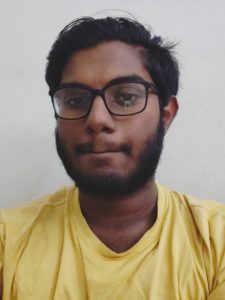
Allan Suresh
Bachelors student at the National Institute of Technology, Karnataka
I am currently in the final year of my undergraduate degree at the National Institute of Technology, Karnataka in India. I decided to work on AI safety very recently as I only found out about the general effective altruism community during my third year at college. This past August, I got in touch with GCRI, initially looking for an internship, which I felt would get me familiar with the landscape of general AI governance and safety research despite not focusing on the technical side. I was disheartened to know that GCRI wasn’t offering internships at that point but I found out that the Advising and Collaboration Program was open. An ongoing project regarding the transfer of AI safety techniques caught my eye and I applied for the program mentioning the project I wanted to work on.
I was fortunate enough to work with Seth Baum on a paper on how to transfer safety techniques to existing or future AI projects. Although the paper was mostly complete, Seth was kind enough to listen to some of my comments and feedback on it, even though I didn’t have much experience in the domain. I was nervous at first, but the environment was super friendly and I never felt too much pressure piling up. Whenever I told Seth about any other engagement(usually college work) that popped up from my side, he was very much understanding about it and encouraged me to finish my college work first. I also felt very much welcomed at GCRI and it seemed as though I had been working with them for years.
While working on the paper, I had also reached out to Seth regarding general career advice and he was kind enough to talk to me about the general community, and also about the best paths for me to get into long-termism and specifically technical AI safety research. Later on, Seth invited me to work on an ongoing machine ethics project with Andrea Owe, where we are trying to develop ideas for ethical frameworks that could be built into AI systems. We’re just starting out and exchanging ideas at the moment, and the project is still open-ended at this stage but I’m sure I’ll enjoy the coming months and we’ll be able to work on something really good.
To be totally honest, I was a bit unsure about whether I wanted to work for AI safety as I wasn’t sure I could contribute much initially, but working at GCRI was very much encouraging and helped me reaffirm my decision. I’ve only worked with GCRI for a few months but I hope to continue further assisting them in their quest to make the world a better place.
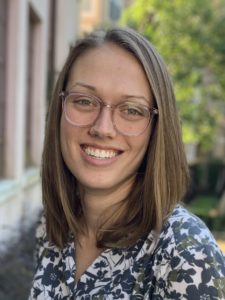
Courtney Tee
Monitoring and Evaluation Specialist at One Earth Future Foundation
I came across the GCRI Advising & Collaboration Program at a fortuitous time; I had just completed a graduate degree and had an emerging interest in global catastrophic/existential risks, but little idea how to get started down a relevant career path. Despite my lack of “proven” experience, the team at GCRI took me on as an advisee and helped me learn more about the GCR space, consider possible early career moves, and connected me to others with similar experiences and interests. Thanks to this personalized guidance I have been able to quickly progress my career towards my goals. Only a year after my first call with GCRI, I was lucky enough to land a great job in measurement and strategy at a peacemaking organization focused on weapons of mass destruction and major political conflicts (in large part thanks to the network GCRI helped me build).
The example GCRI set for me at a crucial moment in my career is one I have tried to pay forward to other young professionals interested in GCRs. In this way, the Advising & Collaboration Program is not only providing career advice and connecting scholars for publications, it is helping create a collaborative and supportive culture for the field at large. Surely this effort is of great value to the growth and sustainability of the GCR community!







